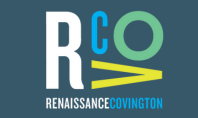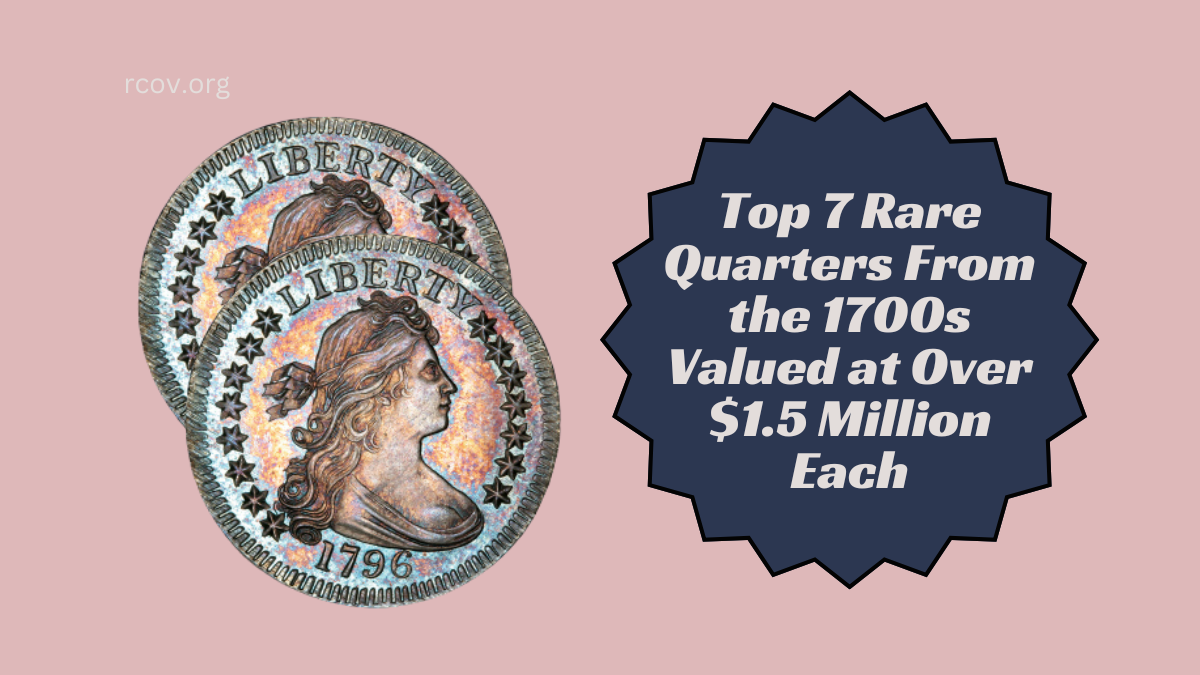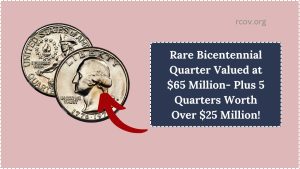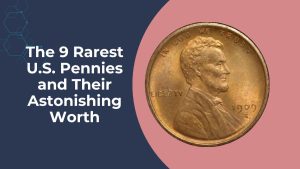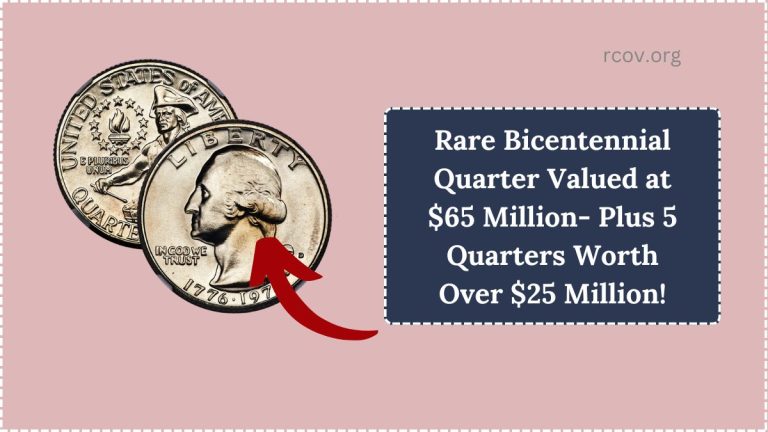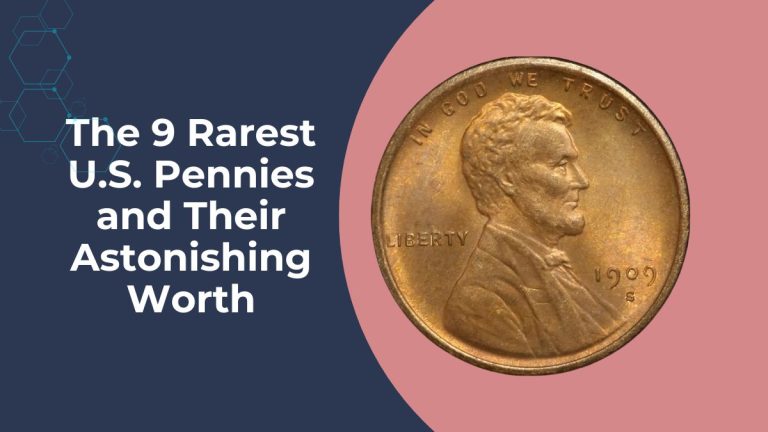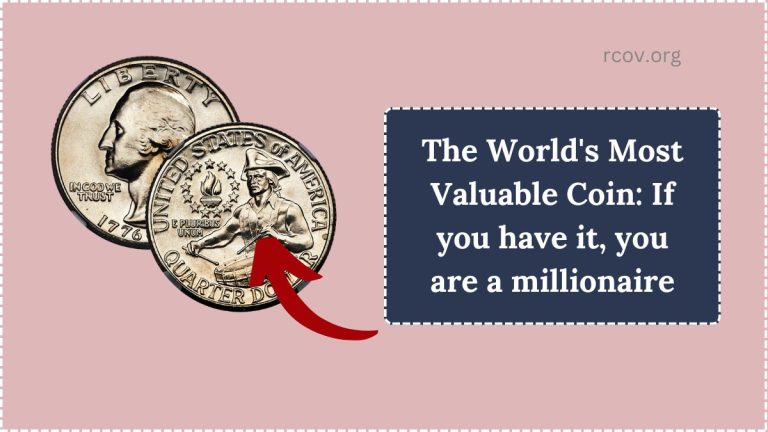Coins from the 1700s hold immense historical and monetary value, with some quarters fetching prices over $1.5 million at auctions. These coins, minted during the early years of American history, represent a blend of exceptional craftsmanship and rarity. Their desirability stems from their limited mintage, unique designs, and the historical significance they carry. Below are seven of the most valuable quarters from the 1700s.
1796 Draped Bust Quarter
The 1796 Draped Bust Quarter is the first quarter ever minted by the United States Mint. Its limited mintage of just over 6,000 coins makes it extremely rare. The intricate design featuring Liberty with a draped bust on the obverse has captivated collectors for centuries.
1796 Draped Bust Quarter with Small Eagle Reverse
This variation of the 1796 Draped Bust Quarter features a small eagle on the reverse side. The small eagle design was short-lived, making this coin even rarer and highly coveted by collectors.
1796 Draped Bust Quarter with Proof Strike
Proof-struck examples of the 1796 Draped Bust Quarter were created with extraordinary precision, meant for collectors or dignitaries. These coins are exceptionally rare, with only a few surviving in pristine condition today.
1796 Draped Bust Quarter in Mint State Condition
Mint State examples of the 1796 Draped Bust Quarter are nearly impossible to find. Coins in this condition are worth over $1.5 million due to their rarity and near-perfect preservation.
1796 Draped Bust Quarter with Full Strike
Full-strike versions of the 1796 Draped Bust Quarter feature crisp, clear details on both sides of the coin. Such examples are rare due to the primitive minting technology of the time.
1796 Draped Bust Quarter with Unique Planchet
This rare variant was struck on a unique planchet, deviating from standard specifications. The rarity of this error makes it a standout piece among collectors.
1796 Draped Bust Quarter with Overstrike Error
Overstrike error coins were created when a previous coin design was struck again with the new Draped Bust design. These errors add to the coin’s rarity and intrigue, making them worth a fortune.
| Coin Name | Year Minted | Unique Feature | Estimated Value ($) |
|---|---|---|---|
| Draped Bust Quarter | 1796 | First Quarter Minted | 1,500,000+ |
| Draped Bust Small Eagle Reverse | 1796 | Rare Reverse Design | 1,600,000 |
| Draped Bust Proof Strike | 1796 | Exceptional Precision | 1,700,000 |
| Draped Bust Mint State Condition | 1796 | Near-Perfect Preservation | 1,750,000 |
| Draped Bust Full Strike | 1796 | Clear Detail on Both Sides | 1,800,000 |
| Draped Bust Unique Planchet | 1796 | Non-Standard Planchet | 1,850,000 |
| Draped Bust Overstrike Error | 1796 | Dual Design from Overstriking | 2,000,000 |
These quarters are a testament to the craftsmanship and historical importance of early American coinage. Collectors and historians alike continue to treasure these rare coins, making them some of the most sought-after pieces in the numismatic world.
FAQs
Why are quarters from the 1700s so valuable?
Their value comes from their rarity, limited mintage, historical context, and unique features, such as errors or pristine condition.
What makes the 1796 Draped Bust Quarter special?
It was the first quarter minted by the United States, and its limited production combined with intricate design makes it highly desirable.
How can I identify a proof-struck coin?
Proof coins are struck with greater precision and often display mirror-like surfaces with sharp details.
Are error coins always more valuable?
Yes, error coins are often rarer, and their uniqueness significantly increases their value.
Where can I sell rare quarters like these?
You can sell them through certified coin dealers, auctions, or specialized online marketplaces catering to rare coins.
